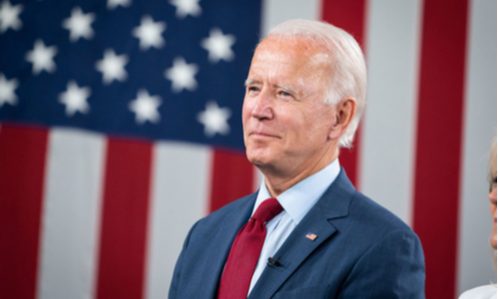Biden Administration Unveils Measures to Tackle Healthcare Costs Through Competition

On Thursday, the Biden administration unveiled five new initiatives aimed at reducing healthcare expenses through the promotion of competition.
The Biden administration on Thursday announced a set of five measures aimed at promoting competition and curbing the influence of major healthcare companies. President Joe Biden, who has made reducing healthcare prices a cornerstone of his 2024 presidential campaign, hopes these measures will build upon previous efforts to make healthcare more affordable for Americans.
The administration has highlighted key achievements, such as allowing Medicare to negotiate certain drug prices for the first time and capping the cost of insulin at $35 per month. However, a recent poll conducted by the Kaiser Family Foundation (KFF) revealed that these initiatives are not widely known among the American public.
The newly announced measures, while incremental in nature, target the practices of major healthcare corporations. The Commerce and Health and Human Services departments released a proposed framework for agencies regarding the exercise of march-in rights, a provision enabling the federal government to license drugs or inventions supported by taxpayer funds to other parties if the invention is not made accessible to the public.
Related: Adviser Tim Wu To Leave Biden Administration
For the first time, the proposed framework specifies that price can be a determining factor in assessing the accessibility of a taxpayer-funded drug or other invention. Neera Tanden, the White House domestic policy adviser, emphasized this shift, stating, “Fundamentally, we are establishing that price can now be a factor in determining when the federal government can march in to ensure that we have lower prices.”
This move has received support from certain Democratic lawmakers, including Massachusetts Senator Elizabeth Warren, who has been a vocal advocate for using march-in rights to combat high drug prices. Warren praised the administration’s efforts, saying, “President Biden is taking a critical and much-needed step to lower costs and rein in the abuses of the pharmaceutical industry.”
However, the pharmaceutical industry, represented by the Pharmaceutical Research and Manufacturers of America (PhRMA), has expressed strong opposition to the administration’s proposal. PhRMA argued that the ‘march-in’ authority, enshrined in the bipartisan Bayh-Dole Act of 1980, was not intended to be a government price-setting policy but rather a safeguard to ensure good-faith efforts by private sector partners in commercializing federally-funded research.
At least one Republican senator has also voiced criticism of the administration’s approach, raising concerns about potential implications for the pharmaceutical sector.
The clash of opinions between the administration, lawmakers, and industry stakeholders sets the stage for a contentious debate on how to strike a balance between promoting competition, reducing healthcare costs, and addressing the concerns of the pharmaceutical sector. As the measures undergo further scrutiny and potential legislative processes, their impact on the healthcare landscape remains uncertain.
Source: Local 3 News
Featured News
Big Tech Braces for Potential Changes Under a Second Trump Presidency
Nov 6, 2024 by
CPI
Trump’s Potential Shift in US Antitrust Policy Raises Questions for Big Tech and Mergers
Nov 6, 2024 by
CPI
EU Set to Fine Apple in First Major Enforcement of Digital Markets Act
Nov 5, 2024 by
CPI
Six Indicted in Federal Bid-Rigging Schemes Involving Government IT Contracts
Nov 5, 2024 by
CPI
Ireland Secures First €3 Billion Apple Tax Payment, Boosting Exchequer Funds
Nov 5, 2024 by
CPI
Antitrust Mix by CPI
Antitrust Chronicle® – Remedies Revisited
Oct 30, 2024 by
CPI
Fixing the Fix: Updating Policy on Merger Remedies
Oct 30, 2024 by
CPI
Methodology Matters: The 2017 FTC Remedies Study
Oct 30, 2024 by
CPI
U.S. v. AT&T: Five Lessons for Vertical Merger Enforcement
Oct 30, 2024 by
CPI
The Search for Antitrust Remedies in Tech Leads Beyond Antitrust
Oct 30, 2024 by
CPI